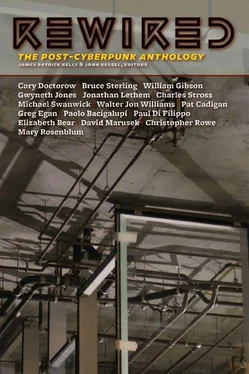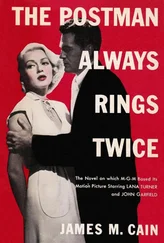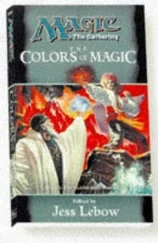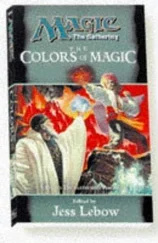To the right of the Lx-43: a rigid cardboard pack of Lucky Strike non-filters and a Pokka coffee tin with the top neatly removed (to serve as an ashtray?).
On the cardboard bulkhead above these things are taped up two sentimental postcards of paintings of kittens playing. “Cat collection” in a cursive font.
Below these are glued (not taped) three black-and-white photographs.
#1: A balding figure in jeans and a short-sleeved T-shirt squats before an earlier, unpainted version of this structure.
One of the cartons seems to be screened with the word “PLAST — ”. He is eating noodles from a pot, using chopsticks.
#2: The “alley” between the shelters. The balding man looks up at the camera. Somehow he doesn’t look Japanese at all. He sits cross-legged among half-a-dozen others. They look Japanese. All are engrossed in something, perhaps the creation of murals.
#3: He squats before his shelter, wearing molded plastic sandals. His hands grip his knees. Now he looks entirely Japanese, his face a formal mask of suffering.
Curve of square tiles.
How long has he lived here?
With his cats, his guitar, his neatly folded blankets?
Dolly back.
Hold on the cassette-player.
Behind it, almost concealed, is a Filofax.
Names.
Numbers.
Held as though they might be a map, a map back out of the underground.
David Marusek
The Wedding Album
David Marusek is relentless as he explores the implications of creating simulated people in VR. This story asks us to reconsider the criteria for being considered human. Who has rights when there can be multiple copies of an individual? Meanwhile, the advent of a cybernetic iteration of the singularity is thwarted, only to be replaced by one that is decidedly posthuman. At the center of a tour through future history that is practically Stapledonian in its scope are a pair of newlyweds; it is their fragile relationship that gives Marusek’s speculation emotional weight. For them, and perhaps for us, this is a horror story. And yet, for the posthumans who gather around them, there is a happy ending indeed.
* * *
Anne and Benjamin stood stock still, as instructed, close but not touching, while the simographer adjusted her apparatus, set its timer, and ducked out of the room. It would take only a moment, she said. They were to think only happy happy thoughts.
For once in her life, Anne was unconditionally happy, and everything around her made her happier: her gown, which had been her grandmother’s; the wedding ring (how cold it had felt when Benjamin first slipped it on her finger!); her clutch bouquet of forget-me-nots and buttercups; Benjamin himself, close beside her in his charcoal grey tux and pink carnation. He who so despised ritual but was a good sport. His cheeks were pink, too, and his eyes sparkled with some wolfish fantasy. “Come here,” he whispered. Anne shushed him; you weren’t supposed to talk or touch during a casting; it could spoil the sims. “I can’t wait,” he whispered, “this is taking too long.” And it did seem longer than usual, but this was a professional simulacrum, not some homemade snapshot.
They were posed at the street end of the living room, next to the table piled with brightly wrapped gifts. This was Benjamin’s townhouse; she had barely moved in. All her treasures were still in shipping shells in the basement, except for the few pieces she’d managed to have unpacked: the oak refectory table and chairs, the sixteenth-century French armoire, the cherry wood chifforobe, the tea table with inlaid top, the silvered mirror over the fire surround. Of course, her antiques clashed with Benjamin’s contemporary — and rather common — decor, but he had promised her the whole house to redo as she saw fit. A whole house!
“How about a kiss?” whispered Benjamin.
Anne smiled but shook her head; there’d be plenty of time later for that sort of thing.
Suddenly, a head wearing wraparound goggles poked through the wall and quickly surveyed the room. “Hey, you,” it said to them.
“Is that our simographer?” Benjamin said.
The head spoke into a cheek mike, “This one’s the keeper,” and withdrew as suddenly as it had appeared.
“Did the simographer just pop her head in through the wall?” said Benjamin.
“I think so,” said Anne, though it made no sense.
“I’ll just see what’s up,” said Benjamin, breaking his pose. He went to the door but could not grasp its handle.
Music began to play outside, and Anne went to the window. Her view of the garden below was blocked by the blue-and-white-striped canopy they had rented, but she could clearly hear the clink of flatware on china, laughter, and the musicians playing a waltz. “They’re starting without us,” she said, happily amazed.
“They’re just warming up,” said Benjamin.
“No, they’re not. That’s the first waltz. I picked it myself.”
“So let’s waltz,” Benjamin said and reached for her. But his arms passed through her in a flash of pixelated noise. He frowned and examined his hands.
Anne hardly noticed. Nothing could diminish her happiness. She was drawn to the table of wedding gifts. Of all the gifts, there was only one — a long flat box in flecked silver wrapping — that she was most keen to open. It was from Great Uncle Karl. When it came down to it, Anne was both the easiest and the hardest person to shop for. While everyone knew of her passion for antiques, few had the means or expertise to buy one. She reached for Karl’s package, but her hand passed right through it. This isn’t happening , she thought with gleeful horror.
That it was , in fact, happening was confirmed a moment later when a dozen people — Great Uncle Karl, Nancy, Aunt Jennifer, Traci, Cathy and Tom, the bridesmaids and others, including Anne herself, and Benjamin, still in their wedding clothes — all trooped through the wall wearing wraparound goggles. “Nice job,” said Great Uncle Karl, inspecting the room, “first rate.”
“Ooooh,” said Aunt Jennifer, comparing the identical wedding couples, identical but for the goggles. It made Anne uncomfortable that the other Anne should be wearing goggles while she wasn’t. And the other Benjamin acted a little drunk and wore a smudge of white frosting on his lapel. We’ve cut the cake , she thought happily, although she couldn’t remember doing so. Geri, the flower girl in a pastel dress, and Angus, the ring bearer in a miniature tux, along with a knot of other dressed-up children, charged through the sofa, back and forth, creating pyrotechnic explosions of digital noise. They would have run through Benjamin and Anne, too, had the adults allowed. Anne’s father came through the wall with a bottle of champagne. He paused when he saw Anne but turned to the other Anne and freshened her glass.
“Wait a minute!” shouted Benjamin, waving his arms above his head. “I get it now. We’re the sims!” The guests all laughed, and he laughed too. “I guess my sims always say that, don’t they?” The other Benjamin nodded yes and sipped his champagne. “I just never expected to be a sim,” Benjamin went on. This brought another round of laughter, and he said sheepishly, “I guess my sims all say that, too.”
The other Benjamin said, “Now that we have the obligatory epiphany out of the way,” and took a bow. The guests applauded.
Cathy, with Tom in tow, approached Anne. “Look what I caught,” she said and showed Anne the forget-me-not and buttercup bouquet. “I guess we know what that means.” Tom, intent on straightening his tie, seemed not to hear. But Anne knew what it meant. It meant they’d tossed the bouquet. All the silly little rituals that she had so looked forward to.
Читать дальше












